- Home
- Julian Barnes
Letters From London Page 5
Letters From London Read online
Page 5
The brothers Al-Fayed now owned Harrods, but Lonrho kicked up such a fuss that a Department of Trade and Industry inquiry was ordered into the circumstances of the takeover. In 1988, its report was presented to the new Trade Minister, Lord Young, but a delay of publication was immediately imposed on the ground that criminal investigations into the takeover were being conducted by the Fraud Squad. The chief executive of Lonrho continued to fume, and the following year, when the report had still not been published, Tiny Rowland (or one of his adjutants) slipped Tiny Trelford (or one of his adjutants) a bootleg copy of the report, which Trelford published as a special, unprecedented midweek edition of the Sunday Observer. It was injuncted shortly after it hit the streets, but Rowland, who by then seemed to be the only person in the country still interested in the ownership of Harrods, had managed to keep the story running.
Finally, this March, five years after the government gave the Al-Fayed brothers the nod, a 752-page report—by a High Court judge and an accountant—was published, and everyone got excited all over again. The Times ran the front-page headline “LYING FAYEDS” KEEP HARRODS over a large photograph of Mohamed Al-Fayed, straw-boatered and white-coated, slicing up a salami in the Harrods food department. The DTI inspectors declared that the brothers, both before and after their bid for the House of Fraser, had “dishonestly represented” their origins, wealth, business interests, and resources to the Secretary of State, the Office of Fair Trading, the press, the House of Fraser board, the company’s shareholders, and even to their own financial advisers. The “catalog of lies” makes interesting reading, not least for its great variety of category: some of the lies seem to be calculated deceptions; others seem to the outsider like normal business practice; still others do no more than comically reflect the quaint British snobbery of those who compiled the report. The Al-Fayeds, the inspectors concluded, had inflated their income, had exaggerated the start-up wealth they possessed when they left Egypt, and had failed to come clean about the origins of their mysterious cash injection. They claimed to have had a fleet of ships that survived Nasser’s nationalization, whereas in fact they had owned only two 1,600-ton cargo ferries at the time. In 1964, Mohamed had spent seven months in Haiti, where he posed as a Kuwaiti sheikh, obtained two valuable government concessions, and decamped after cheating Papa Doc out of $100,000 (which some might consider merited a medal for public service as much as a rebuke). The brothers’ father had not, as they maintained, been close friends with the Sultan of Brunei. The yacht Dodi, which they claimed had always been in the family, was not acquired until 1962. And so on. Nor were their standards of veracity any better when it came to their personal lives and background. They did not, as they had said and allowed to be repeated, come from an old-established Egyptian family who had been shipowners and industrialists for more than a hundred years; on the contrary, they came from “respectable but humble origins” and were “the sons of teachers.” They had supplied false birth certificates, lowering their ages by between four and ten years. They had “improved” their name from Fayed to Al-Fayed. Finally, their claim to have been subjected in childhood to the benign influence of British nannies was rejected as false.
Backbench Conservative MPs reacted to the report with pop-eyed rage. Don’t let the crooks get away with it! Take the shop away from them! Damn Gippo parvenus—first you let them into the club and then it turns out they didn’t even have proper nannies! Such was the tenor of their remarks. Sir Edward du Cann, a former chairman of the powerful Tory backbench pressure group the 1922 Committee, demanded that Harrods be stripped of its four royal warrants (the public sign that the store supplies members of the Royal Family), adding, “I think the Fayeds should be forced to leave the country.” However, since Sir Edward is currently the chairman of Lonrho, his remarks may not have been entirely objective. In contrast with all this backbench clamor, the Conservative Cabinet has throughout the affair shown an extraordinary, almost heroic consistency. Despite the fiercest pressures, it has tenaciously stuck to the holy principle of laissez-faire and has most actively remained passive. The first Trade Secretary to be involved, Norman Tebbit, declined to refer the Al-Fayed bid to the Monopolies Commission. The second, Lord Young, followed this lead and also declined to publish the DTI report. Sir Patrick Mayhew, the Attorney General, declined to prosecute. The third Trade Minister involved, Nicholas Ridley, did even better. Naturally, he declined to refer the matter to the Monopolies Commission. Naturally, he declined to disqualify the brothers from being company directors, as he could have done. But he far outstripped his predecessors in Nelsonic nonnoticing and lizardlike somnolence. His entire statement to the Commons on the Harrods affair and the inspectors’ epic report lasted a mere two minutes, and ended, “No other matters require action from me.” The nearest he came to any judgment on the whole business was to say, “Anyone who reads the report can decide for themselves what they think of the conduct of those involved.”
So what are we to decide? Tory MPs cry bounder and rogue. Labour MPs cry fraud and cover-up (plus bounder and rogue). The Sultan of Brunei, who declined to cooperate with the inquiry, continues to deny that any of his money was involved in the purchase. (The inspectors’ theory runs as follows: the Fayeds used their association with the Sultan, and their possession of wide powers of attorney, to raise money on their own account. This would explain the sudden, huge influx of funds, and also why the Sultan has severed contact with his former representatives.) The Fayed brothers, having lost their “al-” throughout the British press, continue to own Harrods, even if it is now smearily nicknamed Harrabs in some quarters. Mohamed Fayed, who never had a British nanny, continues to slice up salami in the food hall whenever there is a photo opportunity. Harrods itself has gone from being a publicly owned company to being a family business whose parent organization in Liechtenstein is beyond British scrutiny and British law. And the Conservative Government, if we are to believe some Labour analysts, has discovered a new way of rescuing the currency when it bumps against the seabed. What does it cost? Just the occasional national monument Harrods and the Dorchester this time, Windsor Castle the next.
As for Tiny Rowland, he continues, as he has done all through the affair, to dispatch bizarre and hectoring circular letters to Members of Parliament and other opinion formers. They are printed on fine paper and sturdily bound like an investment prospectus; inside, they mix ferocious denunciations of the Fayeds with lofty calls to arms. In their obsessiveness they are, in a way, love letters to Harrods. The latest, a sixteen-pager (of March 27), typically entitled “Practise to Deceive,” catalogs the recent high crimes and misdemeanors of the Fayeds—roughly, bleeding Harrods dry and cooking the books—but also comes up with a novel line of attack. Rowland analyzes statements that the brothers made to the DTI inspectors about their periods of residence in Britain (which do make very contradictory reading) and concludes that, whatever they may have claimed officially for tax purposes, they are and have been resident in Britain for many years. This, Rowland points out, makes them taxable in this country. “There is one regulatory body still to act,” he writes, and bursts into capitals with the new threat: “THE INLAND REVENUE.” The Fayeds, he calculates, have over the years evaded “hundreds of millions” of pounds in income tax. Worse—though much better, of course, for Rowland—if, as they claim, they purchased the House of Fraser with their own money, “then their funds are the taxable funds of United Kingdom residents, bringing the outstanding Tax payable to one billion pounds. That is the position today.” One billion pounds: as precise as that. It seems unlikely, however, that the Revenue will heed this public-spirited tip-off, and Rowland himself clearly doubts it. “All is silent,” he laments on the final page of his letter. “No dogs bark. It is because the Fayed affair was put in motion by the Prime Minister, Mrs. Thatcher.” At which point paranoia begins to fizz and crackle in the air like static. “Is it not laughable,” he inquires of the MPs he is addressing, “that the Prime Minister of Britain should have been
so naive as to seek advice from the Indian ‘holy man’ who introduced Fayed to the Sultan of Brunei; should have obeyed his instructions to part her hair, to wear a red dress, and to tie an Indian amulet above her left elbow to assist his supernatural pondering; should spend many hours closeted with him and his mystic tantric little balls of paper—and then tell the House of Commons that the Fayed decisions have nothing to do with her?”
What is the color of money? Amid the empurpled Tory rage, it’s hard to make out whether the Fayeds’ main offense is to have been (a) deceitful, (b) parvenu, or (c) Egyptian. Probably all three. Had the Sultan of Brunei come out and said he wanted to buy Harrods, we probably wouldn’t have minded; but then not only did he have top-notch British nannies, but he also went to Sandhurst. (Though behind the snobbery a central point remains: if the money used to buy Harrods was not unequivocally owned by the Fayeds, then debt financing would have to take priority over capital investment, and the stability of the company might be affected.) In general, the Conservative Government has taken a relaxed view of foreign companies buying up parts of Britain. (Stop press: the American food giant CPC International has just bought three staples of the British kiddie’s pig-out—Ambrosia creamed rice; Bovril, an umber spread made from ground-up ox; and Marmite, a vegetarian equivalent of take-no-hostages pungency.) As for the Labour Party, though instinctively protectionist, it, too, knows when to take a practical stance on foreign ownership. For instance, I live in the London Borough of Camden. Like many other Labour councils squeezed by a Tory central government over the last decade, Camden at one point succumbed to a bit of creative accounting. In a striking (or perhaps batty) financial coup, it sold all the parking meters in the borough to a French bank and then leased them back. The council benefited by a capital sum, though quite what was in it for the French bank was a mystery to us locals. It also became a strange experience to park your car and reflect that the meter you were feeding belonged to the French. You felt as if you ought to insert a five-franc piece instead of fifty pence. And it has to be said that Gallic ownership has made no difference to the efficiency of these stubbornly temperamental machines.
IT’S NOT JUST the parking meters, the creamed rice, and Harrods. These days, we don’t even own The Times. First, it was bought by a Canadian, Roy Thomson; and now it belongs to Rupert Murdoch, an Australian who couldn’t even be relied upon to stay Australian but turned into an American, no doubt for the best of business reasons. At least the editor has remained traditionally British, and the new one, appointed in mid-March, couldn’t be more so. Simon Jenkins is Murdoch’s fourth editor in a decade, a period during which the newspaper’s finances have remained healthy but its personality has endured a running state of trauma. The Times, of course, has always attracted labels and expectations like no other newspaper: from “the Thunderer” of Victorian days to “the newspaper of record,” “the noticeboard of the Establishment,” “the Top People’s Paper,” and so on. There is, naturally, a rival view as well: The Times is the paper that sought to appease Hitler in the late thirties, and a decade later kissed its hand to Stalin. “The Sycophants’ Gazette,” it was called recently by the columnist Edward Pearce. “In truth,” wrote Pearce, “the old Times was a rotten paper, incapable of being judged objectively since it was not sustained by objective merits but [by] levitating two feet off the ground by divine will, like St Joseph of Copertino.”
Still, even this Josephine trickery serves to mark The Times out from other journals, suggesting some cherished ideal of what it might be or perhaps once was. This notion has been under attack now for some time—internally, thanks to an editorial and marketing course of such zigzaggery that you would have thought the paper was trying to shake readers off rather than attract them, and externally by the rise of one particular rival. From the beginning of modern history, there were only three “quality” dailies in Britain. On the left, the Guardian; on the right, The Times; a bit farther to the right, the Daily Telegraph. That was all there was, and that, conventional wisdom claimed, was all there was room for. Change happened only when newspapers died; they didn’t get born anymore. However, this lethargic cartel was broken in 1986 by the arrival of The Independent, a fresh-faced, tycoon-free, unaligned, upmarket, new-technology daily. Old Fleet Street hands tended to discount its chances: Anthony Howard, the former editor of both The New Statesman and The Listener, and deputy at the time to Tiny Trelford at the Observer, widely predicted that the paper would fail, and that its editor would be out within six months. Undeterred, the paper has flourished and is steadily beginning to overhaul its established rivals: the last set of audited circulation figures showed the Guardian at 433,530, The Times at 431,811, and The Independent at 415,609. Mr. Howard himself, a rueful smile on his face, now writes a weekly column for The Independent.
It’s not just circulation, either. The Independent has shaken up newspaper design, with much bolder use of photographs (a move the Guardian has followed); it put strong foreign correspondents in place at a time when news values were generally becoming more Anglo-centric, and ran the first stirrings in Eastern Europe on its front page before its rivals did; it teasingly produced a color supplement largely in black-and-white, and offered broad, vivacious obituaries, which contrasted sharply with the turgid necrologies of Sir Tufton Bufton and his ilk to be found in The Times. While being “independent,” the new paper has swiftly built up its own establishment, which alarmingly overlaps with that of the old Times. A small but pertinent distress signal blew when Graham Greene, inveterate writer of letters to The Times and genial provocateur, started addressing his envelopes to The Independent instead. In one of his earliest statements after taking office, Simon Jenkins, asked to say which of his immediate rivals he was targeting, named them all, but added, “There is only one paper which, five years ago, put its tanks on our lawn and that is The Independent? This is indeed the case, though it has to be said that the tanks went in with hardly a shot being fired, while the front fence hadn’t been mended for years.
And when you get inside this famous stately home you find that the walls are peeling, the linen-fold paneling has been ripped out, and most of the (probably genuine) Old Masters have been sold off Visitors are still happy to pay the entrance charge, but many leave shaking their heads at the way the old place has been run down. All of which makes the appointment of Simon Jenkins thoroughly appropriate not just in fact but also in metaphor. He first made his name in the early seventies as a journalist campaigning to save bits of London from the property developers and helped found an organization called Save Britain’s Heritage. Now he has been handed the biggest heritage-saving job of his career.
Jenkins, who is forty-six, is a cultivated and charming man, dapper in appearance, scrupulously polite yet intellectually steely; very English, while also being married to the American actress Gayle Hunnicutt. He is a writing editor, with an excellent track record: as campaigner; as editor, at thirty-three, of the London Evening Standard, and then as political editor of The Economist for seven years. Until recently he was a columnist on the Sunday Times, while also occupying himself with the sort of great-and-good roles (on the board of British Rail) which normally come later in life. He had resigned from the Sunday Times and was just about to join The Independent when headhunted by The Times. Ironically, he now has to go into daily battle with the paper he nearly joined, convincing himself that it isn’t really as good as he thought, scouting for weaknesses, and giving added credence to any whispers of financial instability.
But does The Times still have any symbolic value? Is it still “the newspaper of record”? (And does that phrase, in any case, mean much? Surely all newspapers aspire to be newspapers of record; the phrase is as redundant as “investigative journalist”) Rather to his surprise. Jenkins says, he finds that the Times legend retains its force. “There’s something about British newspaper readers,” he says. “They want there to be a Times even if they don’t read it. It’s like wanting the Royal Family to be there, or a
rural station to be kept open even if they don’t use it.” Much goodwill remains, though of a rigorous kind: The Times doesn’t just have readers; it has fingernail monitors. If a journalist puts “Lady Miranda Spofforth” instead of “Miranda, Lady Spofforth” (or vice versa), stern letters flow from rectory and dower house. After Lord Rothschild’s death recently, The Times obituary muddled up his succession, and the rebukes came in like thrown fish knives.
When Jenkins is asked to locate his politics, he describes himself as an “enthusiastic Thatcherite,” applauding her “iconoclasm” and finding her economic policies “wholly salutary.” (Asked about the Rowland-Fayed squabble, he murmurs, “A plague on the whole bloody business,” and judges Minister Ridley’s nonintervention “quite right”) In other respects, he has reservations about Mrs. Thatcher—“I feel much more worrying is her appeal to basic instincts on social questions”—and on education Jenkins says he is “quite left-wing.” (This, by the way, is the British quite, meaning “fairly,” rather than the American quite, meaning “very”) He is also sophisticated or canny enough to know the dangers of a newspaper being seen as a political camp follower. Cautiously declining to criticize his predecessors, he notes that “The Times has been too closely identified with the present incumbent of Downing Street”—a polite way of saying that for some years it has wagged its tail off, rolled delightedly on its back, and brought Mrs. Thatcher her slippers in the evening.
Jenkins’s first influence has been to calm down the strident—some would say vulgar—design of the paper: smaller headlines, no stories in bold, no double rules, less boxing of items, and a “light basement” (i.e., a nonpolitical, human-interest story) on the news pages. There is still a long way to go in terms of substance: he needs to win back some of the good writers The Times has lost over the years, or, preferably, to discover their successors; he needs better feature coverage, friskier arts pages, solider news; he needs to reimpose accuracy and authority. He also knows that there is an inevitable time lag between such things being established and their being spotted and relied upon by readers: for some time, dinner parties will continue to feature that impaling moment for Mr. Jenkins when the agreeable neighbor to his right congratulates him on his appointment and adds smilingly, “But of course I read The Independent? Before his job is finished, he will need to delete a few bylines, and there can be little security in knowing that so far each of Murdoch’s four editors seems to have been chosen for virtues that exactly contradict those of his immediate predecessor. Hearteningly, though, Jenkins is the first Times editor in recent years to be appointed with an evident brief to take the newspaper back upmarket. The office from which he seeks to do this is a small, windowless hutch in London’s docklands—“the submarine captain’s cabin,” he calls it—whose walls are covered with ancestral portraits of previous editors. History breathes down his neck, and there is no contemporary view: skeptics might find these surroundings singularly appropriate for an editor of The Times. But for the moment even political and journalistic opponents are wishing Simon Jenkins well. You don’t have to believe in feudalism to want the local castle to be in good repair.

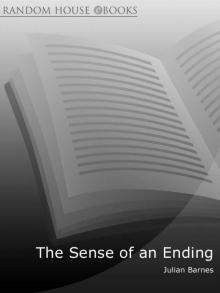 The Sense of an Ending
The Sense of an Ending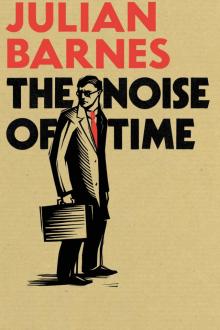 The Noise of Time
The Noise of Time Metroland
Metroland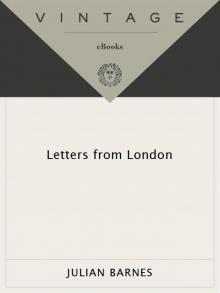 Letters From London
Letters From London Before She Met Me
Before She Met Me Pulse
Pulse Flaubert's Parrot
Flaubert's Parrot England, England
England, England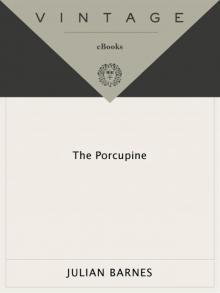 The Porcupine
The Porcupine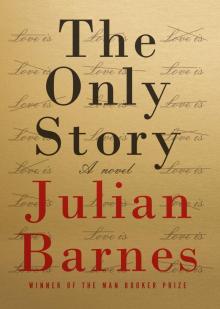 The Only Story
The Only Story Love, Etc
Love, Etc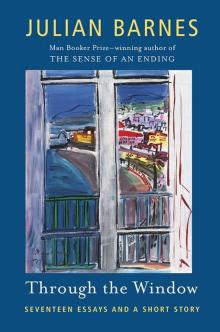 Through the Window: Seventeen Essays and a Short Story
Through the Window: Seventeen Essays and a Short Story Staring at the Sun
Staring at the Sun Cross Channel
Cross Channel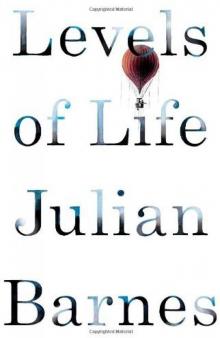 Levels of Life
Levels of Life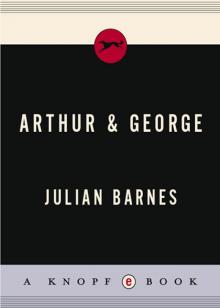 Arthur & George
Arthur & George Love, Etc.
Love, Etc.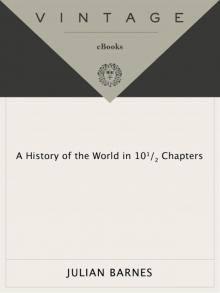 A History of the World in 10 1/2 Chapters
A History of the World in 10 1/2 Chapters Something to Declare
Something to Declare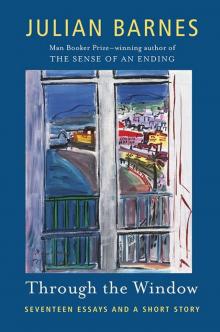 Through the Window: Seventeen Essays and a Short Story (Vintage International)
Through the Window: Seventeen Essays and a Short Story (Vintage International)